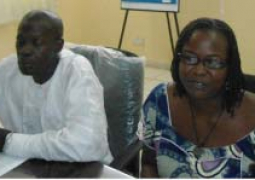
“This is the best estimate of my date of birth” added a footnote in “Kairaba”, Sir Dawda’s autobiography published in 2009, and the source for the information in this article.
Sir Dawda’s place of birth was a village called Barajally in the Niani District of the Central River Region (then MacCarthy Island Province, “one of the six administrative divisions of the Protectorate”).
For forty-three years, Sir Dawda was the leader of the People’s Progressive Party (PPP), which role he assumed “after it was offered me in March 1959”.
The PPP led The Gambia to independence on 18th February 1965. Membership of the Commonwealth was automatic, and Sir Dawda attended the Commonwealth Prime Ministers Conference, which was held in London in early July 1965.
“In mid-1966, it was with great honour and pride that I received my knighthood from Queen Elizabeth II at Buckingham Palace”.
Membership of the Organisation of African Unity (OAU) and then the United Nations soon followed.
“Senegal had sponsored our membership of the OAU at the Meeting of Foreign Ministers held in Nairobi in February 1965.
“Given The Gambia’s good reputation as a democratic, peaceful and stable country, it was no surprise that in 1987 the OAU decided to locate the African Commission on Human and People’s Rights in Banjul.
Consequently, in line with Article 25 of the OAU Charter enjoining countries to educate their citizens on their rights, privileges and obligations, my government created a national human rights institution that in 1989 became the continental civil society flagship, the African Centre for Democracy and Human Rights Studies.
“Our country’s application to join the United Nations had been sponsored by the United Kingdom, Malaysia, Jordan and the Ivory Coast, and the Security Council had prepared a recommendation to be put forward to the General Assembly at its meeting slated for September 1965.
“Indeed, after we were admitted, I addressed the UN General Assembly on 21 September 1965 at its 20th Session, and spoke of our becoming one of the smallest countries to have acceded to international sovereignty, and explained the deep sense of pride and humility with which The Gambia had taken its rightful place in the family of nations.”
Sir Dawda’s party also worked on a Republican constitution for The Gambia, which became a Republic on 24 April 1970, with Sir Dawda as the country’s first head of state and government.
“The people’s confidence in voting the country into a republic had raised the profile of The Gambia internationally. The country would, therefore, have to take its rightful place on the international stage. And the world heard us, indeed, in September 1970 when I addressed the OAU for the first time as President of the newest republic on its list of members at the 7th Assembly of Heads of State and Government”.
On 22 July 1994, Sir Dawda’s government was removed from power, when the army led by then lieutenant Yahya Jammeh seized power. Sir Dawda received asylum in the United Kingdom.
In 2001, Sir Dawda in a letter to the PPP president resigned from the PPP and retired “from active party politics”.
Subsequently, he returned to The Gambia from exile in London, after President Yahya Jammeh in December 2001 “announced he has granted me unconditional amnesty”.
Sir Dawda consequently returned to the country from self-exile in early June 2002, as an “elder statesman”.
“On Monday 24 June 2002 at 2.30 pm, I walked up the steps to my former office after nearly eight years away…closed-door meeting, we went over the territory we had covered during the telephone conversation, and in the end assured each other that we had arrived at, perhaps, the best thing for the government, for me, for him and, best of all, for the image of the country. President Jammeh reiterated that it did not do The Gambia any good for me to continue to live in exile. He said it was important to recognize someone who had worked all his life for his country.
“I told the press in a short interview after that historic meeting, that the President’s gesture and my return should contribute greatly to national reconciliation and harmony,” Sir Dawda recorded in his autobiography.



